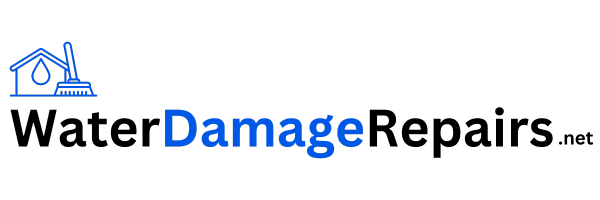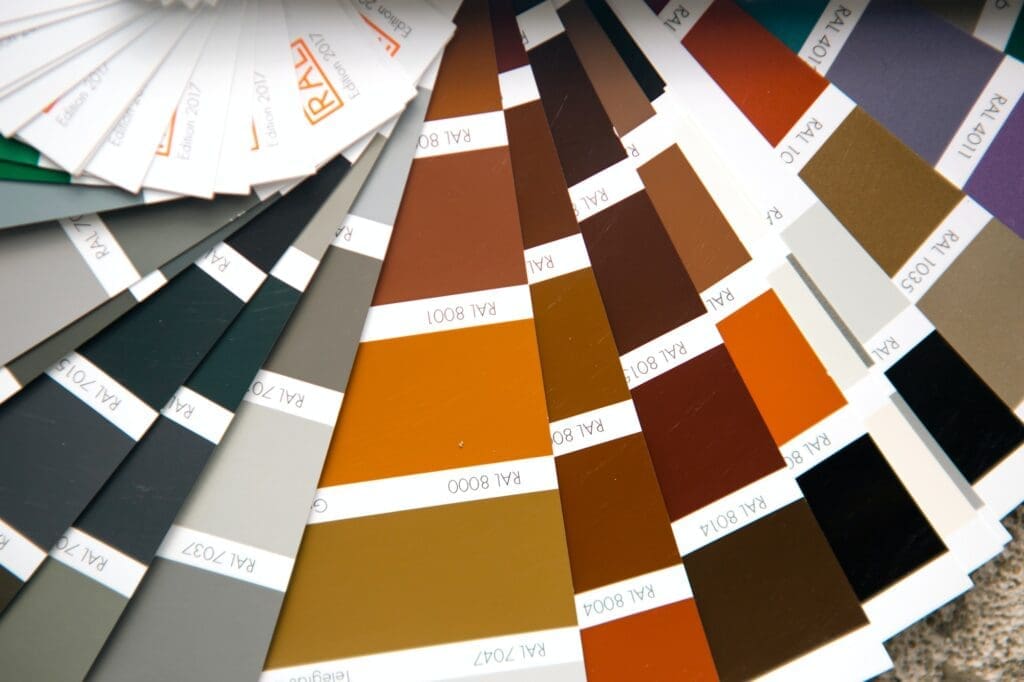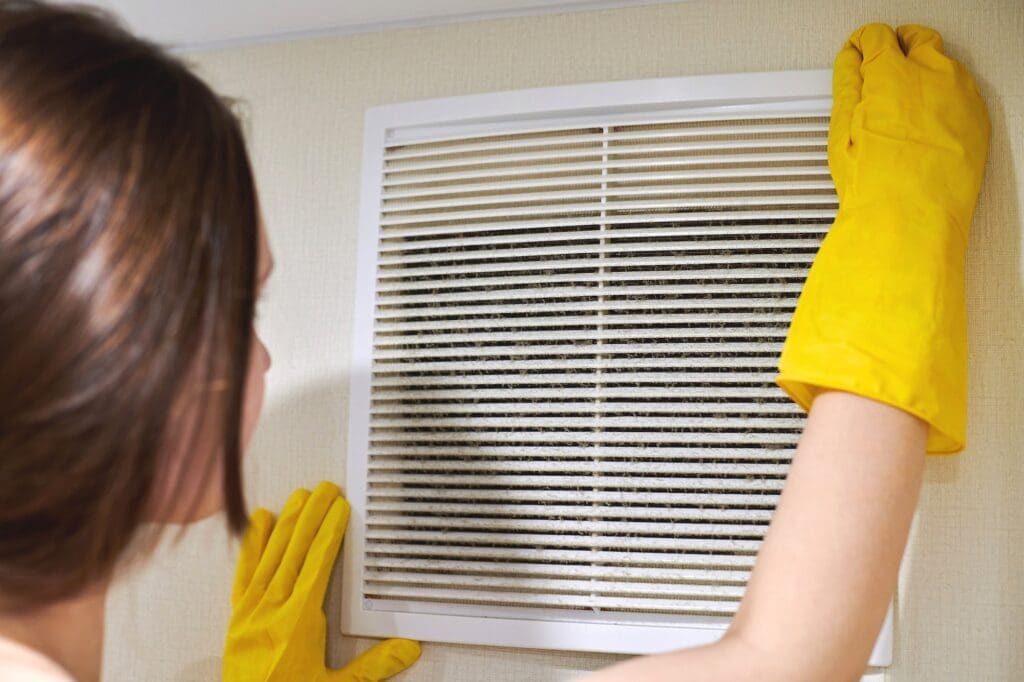Water Damage And Your Insurance Policy: What You Need To Know
As someone who’s passionate about helping others, I know that one of the most critical aspects of our lives is ensuring our homes are safe and secure. That’s why I’m here to talk to you today about a topic that many homeowners may overlook: water damage and how it affects your insurance policy.
Water damage can wreak havoc on your home, causing costly repairs and emotional distress for those affected by it. But don’t worry – as an insurance expert, I want to help you understand what you need to know so that you’re prepared in case this issue ever arises.
In the next few minutes, let’s dive into the world of water damage and its impact on your insurance coverage. We’ll discuss common causes of water-related issues in homes (so you know what to watch out for) as well as key elements within your policy that come into play when dealing with such mishaps.
I promise we’ll make this process simple and informative while keeping in mind our shared desire to serve others – after all, knowledge is power! So sit back, relax, and prepare yourself for some valuable insights that will ultimately lead to better protection for both your home and wallet.
Overview Of Water Damage
As an insurance policy expert, I understand that water damage can be a real headache for homeowners. It’s essential to know the ins and outs of your insurance policy when it comes to water-related issues.
While we all want our homes to be safe havens, unexpected events like floods or leaks can lead to costly damages. That’s why taking preventive measures such as flood prevention and regular water testing is crucial in safeguarding our properties against potential disasters.
Being proactive about protecting your home not only gives you peace of mind but also contributes positively towards serving others – after all, a well-maintained property benefits everyone in the community!
Now that we’ve covered some basic information on the importance of understanding your insurance policy concerning water damage let’s dive deeper into common causes of water damage in homes, so you’ll be better equipped to prevent and address these problems effectively.
Common Causes Of Water Damage In Homes
When it comes to water damage in homes, one of the most common causes are leaky pipes. That’s why it’s so important to know what your insurance policy covers when it comes to these sorts of issues. Flooding is another big issue that homeowners should be aware of. It’s essential to understand how your insurance policy would respond in the event of a flood.
Leaky Pipes
I don’t know about you, but I’ve definitely had my fair share of leaky pipes in the past. It’s not fun, and it can be one of the most common causes of water damage in homes.
As an insurance policy expert, I’d like to remind you that routine pipe maintenance is crucial for preventing flooding risks associated with these pesky leaks. You might think it’s just a small drip, but trust me – those drips add up quickly!
By taking care of your home’s plumbing system and being proactive in addressing potential issues, we’ll all feel better knowing we’re doing our part to help prevent unnecessary water damage claims for ourselves and our neighbors.
So next time you spot a little trickle from under the sink or behind the toilet, make sure to tackle it head-on before it turns into a bigger problem down the road.
Flooding
Speaking of leaks, another common cause of water damage in homes is flooding.
As an insurance policy expert and fellow concerned homeowner, I know just how devastating floods can be for both our properties and the well-being of those living in them.
That’s why it’s essential to take steps like drought proofing your home and investing in mold prevention measures – not only will you protect your own property, but you’ll also contribute to a safer community by minimizing the chances of widespread flood damages.
So, let’s work together towards ensuring that we all have dry, safe places to call home, knowing that our efforts are helping others as much as they’re benefiting ourselves!
Understanding Your Insurance Policy
Now that we’ve covered the basics of water damage and your insurance policy, let’s dive deeper into understanding how to ensure you’re properly protected.
As someone who genuinely cares about serving others, taking the time to review your policy and make any necessary adjustments is an important step in safeguarding both yourself and those around you.
To begin with, it’s essential to know what flood prevention measures are available for your property and how they can affect your insurance coverage. For instance, installing a sump pump or making improvements to your drainage system could potentially lower your premium while also providing valuable protection against potential disasters.
Additionally, don’t forget the importance of regular policy reviews! By staying updated on changing regulations and requirements, as well as assessing whether your current coverage adequately addresses new risks or changes in value, you’ll be better equipped to continue effectively serving others by minimizing financial setbacks due to water damage.
With all this knowledge at hand, let’s move forward to explore exactly what types of damages are typically covered by most insurance policies.
What Is Covered By Insurance?
Navigating the waters of insurance policies can be like swimming upstream. But don’t worry, I’m here to help you understand what’s covered by your insurance when it comes to water damage.
Many standard homeowner’s and renter’s insurance policies do cover certain types of water damage such as from a burst pipe or malfunctioning appliances. However, they often exclude coverage for damages caused by natural disasters like floods or storms. That’s where knowing your flood risks and having proper waterproofing measures in place come into play.
Before we dive deep into filing claims, let’s shed some light on additional coverages that may save the day for those who live in high-risk flood areas or want extra protection against water-related losses. You have options like purchasing flood insurance through the National Flood Insurance Program (NFIP) or adding endorsements to your policy which extend its coverage beyond just basic perils. This way, you won’t be left high and dry during an unexpected deluge!
Now that we’ve got that settled, let’s explore how to make sure your claim sails smoothly through the process without any hiccups along the way.
How To File A Claim
So, you’ve experienced water damage in your home and now it’s time to navigate the claim process. Don’t worry; I’m here to help guide you through this sometimes complicated journey, ensuring that you make the most of serving yourself by maximizing what your insurance policy covers.
To file a claim for water damage effectively and efficiently, follow these four simple steps:
- Contact your insurance company as soon as possible: The sooner you report the incident, the better chance you have at getting everything sorted out quickly.
- Document all damages thoroughly: This means taking photos or videos of every affected area, making a list of damaged items (including their value), and keeping receipts for any repairs made.
- Cooperate with adjusters and contractors: Be sure to provide them with all necessary information and documentation so they can accurately assess your claim.
- Understand your policy limits: Familiarize yourself with coverage amounts and deductibles specific to water damage – this will help prevent any surprises when it comes time for reimbursement.
By following these guidelines, not only will you be able to serve others more effectively but also ensure that the claim process is smooth sailing from start to finish!
Remember that staying proactive is key when handling water damage claims – if something doesn’t seem right or if there are questions left unanswered, don’t hesitate to reach out to your insurance provider for clarification. After all, we’re here to help!
Now that we’ve covered how best to handle filing a claim after experiencing water damage let’s dive into some handy tips on minimizing future occurrences so you can continue focusing on giving back without unnecessary distractions!
Tips For Minimizing Water Damage
Now that you’ve got the lowdown on filing a claim for water damage, let’s dive into some practical tips to help minimize future incidents. By taking preventative measures and engaging in proactive planning, not only can you save yourself from potential headaches down the road, but also contribute to creating safer living spaces for those around you.
To start with, make sure your home is equipped with devices like sump pumps and water alarms, which can alert you early on of any possible leaks or flooding situations.
Regularly inspecting your plumbing systems and appliances such as washing machines, dishwashers, and refrigerators will ensure they are functioning properly without causing any water-related issues.
Additionally, it’s important to keep gutters clean and maintain proper drainage patterns around your property to avoid pooling of water near building foundations.
Taking these steps will go a long way towards preventing costly water damage while fostering an environment where everyone thrives.
Next up, we’ll discuss how factors that affect your insurance rates play into this equation!
Factors That Affect Your Insurance Rates
Imagine you’re standing in your cozy living room, admiring the beautiful artwork on the walls and feeling safe from the elements outside. Suddenly, a torrential downpour begins, causing water to seep through every crack and crevice of your home. In an instant, all that you’ve worked so hard for is at risk of being washed away. While we can’t control Mother Nature’s whims, knowing how various factors affect our insurance rates can help us be better prepared to protect ourselves financially against such calamities.
Now let’s delve into some specific aspects that influence our insurance premiums when it comes to water damage:
- Flooding risks:
If your home is situated in a high-risk flood zone or has experienced flooding issues in the past, expect higher insurance rates. - Proximity to bodies of water:
Homes closer to rivers, lakes, or coastlines are more susceptible to flooding and therefore likely to have increased premiums. - Community flood management measures:
Areas with robust infrastructure like levees and dams may enjoy lower insurance costs since they provide added protection against floods. - Weather protection:
The condition of your roof plays a crucial role in safeguarding your property against water damage. - Age and materials used:
Older roofs or those made of less-durable materials may not offer as much resistance against extreme weather conditions, leading insurers to charge higher rates. - Regular maintenance checks:
A well-maintained roof signals that homeowners are proactive about preventing potential issues caused by severe storms – this could result in reduced insurance fees.
So now that you understand some key variables affecting your water damage policy rates, you’ll be better equipped to make informed decisions regarding coverage options.
Next up? Let’s explore why conducting a thorough home inspection should never be overlooked while seeking adequate protection for our abodes.
The Significance Of A Home Inspection
As we’ve seen, there are various factors that can impact your insurance rates. But before you make any decisions about purchasing a policy, it’s crucial to understand the importance of having a thorough home inspection done.
This isn’t just for your peace of mind – believe it or not, a detailed home inspection can actually help protect you and your family in the long run by identifying potential water damage risks.
In this section, we’ll explore how floodproofing and diligent home maintenance play an essential role in safeguarding your property against water damage. By taking preventive measures like installing sump pumps, cleaning gutters regularly, and ensuring proper sealing around windows and doors, you’re doing more than just reducing the likelihood of costly repairs down the line – you’re actively contributing to creating safer communities for everyone.
So as you weigh your options when it comes to choosing an insurance policy for your home, remember that investing time and effort into proactive measures is just as important as selecting the right coverage. With that said, let’s dive deeper into understanding how to choose the right insurance provider while keeping these considerations in mind.
How To Choose The Right Insurance Provider
Imagine you’re a first-time homeowner, and after weeks of shopping around for the perfect insurance provider, you finally find one that seems to tick all your boxes. You’re thrilled with their price comparison tool, which shows you how much money they could save you compared to other providers.
But when disaster strikes in the form of extensive water damage from a burst pipe, you suddenly realize that there’s more to consider than just saving on premiums – like reliable and compassionate customer service.
As an insurance policy expert, I can tell you that choosing the right provider is about so much more than simply finding the lowest rates. It’s important to also take into account factors such as financial stability, customer satisfaction ratings, claim handling processes, and coverage options offered by each company before making your decision.
Don’t be afraid to ask questions or seek out reviews from current customers who have experienced similar claims situations. This way, not only will you have peace of mind knowing that your home is protected against potential water damage disasters but also that your chosen provider is committed to helping others through challenging times like these.
Next up: let’s explore why working with an insurance agent may offer additional benefits during this process.
The Benefits Of Working With An Insurance Agent
Now that we’ve discussed how to choose the right insurance provider, let’s explore another important aspect of managing your water damage risk: working with an insurance agent.
An experienced and knowledgeable agent can make a world of difference in ensuring you have the proper coverage and support when it comes to dealing with potential water damage claims. As someone who has a heart for serving others, seeking advice from an insurance agent is crucial in evaluating needs specific to your situation.
They’ll help you navigate through various policies and identify any gaps or overlaps in protection. By working closely with an agent, they can tailor a policy that best suits your unique requirements, giving you peace of mind knowing you’re properly covered should any unforeseen water damage occur.
So don’t underestimate the value of cultivating a strong relationship with an insurance professional – their expertise will be invaluable as you strive to protect your property and serve those around you.
Frequently Asked Questions
How Can I Determine The Extent Of Water Damage In My Home If It’s Not Immediately Visible?
It feels like the weight of the world is on your shoulders when you suspect water damage in your home but can’t visibly see it.
As an insurance policy expert, I understand how crucial it is to determine the extent of water damage before it wreaks havoc on both your property and peace of mind.
One essential step towards protecting your sanctuary and serving others who may be affected by similar issues is investing in waterproofing and moisture proofing measures.
By doing so, you’re not only safeguarding your home but also contributing to a safer environment for all.
To uncover hidden water damage, consider hiring professional inspectors who use advanced tools such as infrared cameras or moisture meters because they can detect even the slightest signs of dampness behind walls or under floors.
Remember that early detection plays a key role in minimizing long-term effects, saving precious resources, and ultimately preserving our collective well-being.
Are There Any Specific Preventative Measures I Can Take To Reduce The Risk Of Water Damage In My Home, Such As Installing Certain Devices Or Systems?
Absolutely, there are several preventative measures you can take to reduce the risk of water damage in your home!
By investing in moisture proofing and leak detection systems, you’ll not only protect your precious belongings but also serve as a responsible homeowner who cares for their neighbors.
Some effective solutions include:
- Installing water alarms that alert you when they detect excess moisture
- Using smart water shut-off valves connected to an app on your phone
- Regularly checking and maintaining appliances like washing machines and dishwashers
- Insulating exposed pipes during cold months to prevent freezing and bursts
- Making sure gutters are clean and working properly
Taking these steps will give you peace of mind knowing that you’re doing everything possible to minimize potential water damage risks in your home.
How Does The Age And Condition Of My Home’s Plumbing System Impact My Insurance Coverage For Water Damage?
The age and condition of your home’s plumbing system can definitely impact your insurance coverage for water damage.
As an insurance policy expert, I’d recommend prioritizing system upkeep and regular plumbing maintenance to ensure that you’re not caught off-guard by any unexpected leaks or bursts.
Insurance companies tend to look more favorably on homeowners who take steps to prevent potential issues, so investing in routine checkups and fixing any problems as they arise will not only give you peace of mind but might also help you secure better rates from insurers.
Plus, knowing that you’ve done your part to keep your home safe and sound means you’ll be contributing positively to the larger community – after all, it feels good to know we’re looking out for one another!
If I Am Renting A Property That Experiences Water Damage, What Are My Responsibilities As A Tenant, And How Do They Differ From My Landlord’s Responsibilities?
Picture this: you’re renting a beautiful home, and suddenly water damage strikes. It’s like a storm cloud looming over your head as you navigate the complex world of tenant rights and renting responsibilities.
As an insurance policy expert, I’m here to shed some light on this murky situation! When it comes to dealing with water damage in a rental property, understanding the difference between your responsibilities as a tenant and those of your landlord is crucial.
Generally speaking, tenants are responsible for reporting any issues promptly while adhering to their lease agreements regarding maintenance or repairs. On the other hand, landlords have more extensive duties such as providing habitable living conditions and addressing significant problems that impact safety or health.
Ultimately, working together harmoniously can make weathering these storms much smoother – after all, helping each other out feels pretty great too!
Can I Purchase Additional Coverage Or Endorsements To My Insurance Policy To Better Protect My Home Against Water Damage, And If So, What Are Some Common Options?
Absolutely, you can purchase additional coverage or endorsements to better protect your home against water damage!
As an insurance policy expert, I’d recommend looking into flood insurance if you live in a high-risk area. This type of policy will specifically cover damages caused by flooding events that standard homeowners policies typically don’t include.
Additionally, consider adding endorsements for sewer backup and sump pump failure – these are common options that offer extra protection from water-related mishaps like leaky pipes.
By taking these proactive steps, not only will you have peace of mind knowing your home is well-protected, but you’ll also be investing in the safety and wellbeing of those around you.
So go ahead and explore these options with your insurance agent today; it’s a small price to pay for such valuable security!
Conclusion
In conclusion, it is essential to thoroughly inspect your home for any signs of water damage, even if they aren’t immediately visible. This may involve consulting with professionals, conducting routine maintenance checks, and investing in preventative measures such as leak detection devices or upgraded plumbing systems. As a well-informed homeowner, you can significantly reduce the risk of water damage and its associated costs.
As a tenant, understanding your responsibilities towards water damage is crucial in maintaining a healthy relationship with your landlord. Familiarize yourself with the rental agreement and be proactive when addressing any potential issues that arise during your tenancy. Remember that communication is key – keeping an open dialogue with your landlord about repairs and damages will help ensure a smooth renting experience for both parties.
Lastly, don’t forget that insurance policies are not one-size-fits-all solutions; there may be options available to better protect your home against water damage through additional coverage or endorsements. Speak with an insurance expert regarding these possibilities so that you can make informed decisions about safeguarding your property from costly water-related incidents.
By staying vigilant and being proactive in mitigating risks, you’ll have greater peace of mind knowing that you’re doing everything possible to protect your most valuable asset – your home.



